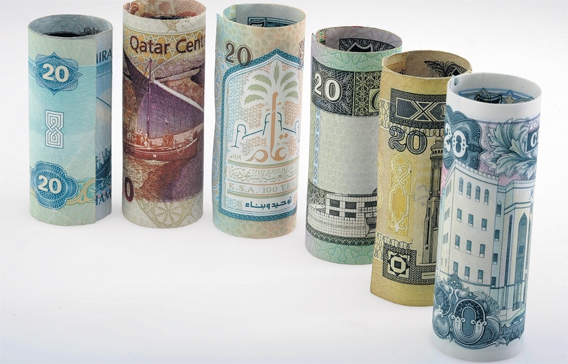The fiscal situation in the region is expected to improve following sustained reforms in spending and subsidy. The GCC economies together are expected to show a GDP exceeding $1.5 trillion, this year, according to an expert.
“This part of the world is going through a transformation. Last year all the six GCC states put together were running on fiscal deficit and current account deficit. However, this year, GCC economies GDP at current prices will exceed $1.5 trillion and current account surplus will be accounting for 2 percent of GDP,” said Dr R Seetharaman, CEO of Doha Bank.
“The fiscal situation is expected to improve across the GCC following sustained reforms in the form of spending cuts and subsidy reforms, aided by reviving oil prices. Qatar’s sustainability can never be challenged. Problems are manageable and controllable, we have reasons to believe that Qatar can report not less than 3.5 percent growth even in the current context,” he said addressing a forum on ‘Regulatory Changes and Opportunities’, organised by Doha Bank, recently.
The event bought in a number of bankers and other officials including H E Nassir Abdul Aziz Al Nasser, UN High Representative for the Alliance of Civilisations and Ali Ibrahim Abdullah Al Malki, Member of BoD of Doha Bank.
The speakers at the event include Dr Ehab Elsonbaty, Senior Legal Counsel, Head of Governance and Government Affairs, Qatar Investment Authority, Sultan Al Kuwari, Capability Development Manager, Qatar Development Bank, (QDB), Prue Morris, Managing Director, Policy and Enforcement, QFCRA and Craig A Richardson, Partner, Head of Tax, KPMG Qatar and Bahrain.
“After the Global Financial Crisis regional regulators have also brought reforms. Qatar Central Bank (QCB) proactively assessed the various exposures of all the Qatari banks under different stress scenarios. VAT will be contribute to the fiscal revenues in the region and enhance tax culture in the region," he said.
Meanwhile, QDB continues to support the SME sector with various initiatives, the recent one being ithmar for entrepreneurs who have ideas and want to convert them into projects.
Qatar Financial Centre has strengthened the bilateral, economic, and commercial cooperation between Asia and Qatar and to explore opportunities for firms to expand in the Middle East through the QFC platform. New regulations are also underway in Qatar for development of economic zones,” Dr Seetharaman added.
Dr Elsonbaty, gave insight on Qatar’s New Arbitration Law, major provisions of the new law and the renewed interest in arbitration in the region with new regional arbitration centers being established or reinvigorated. “The new law is based on UNCITRAL Model Law, an international template for law on arbitration.”
Al Kuwari, spoke on role of QDB in supporting the private sector of Qatar.
Morris, Managing Director, Policy and Enforcement, QFCRA gave insight on the regulatory framework in Qatar and the role of QFC and the benefits of Qatar financial centre.
Craig A Richardson, Partner, Head of Tax, KPMG Qatar and Bahrain gave insight on how VAT application will happen in the region and the impact of VAT on various business.
At the conclusion Dr Seetharaman said the regulatory realignment in GCC will encourage fiscal discipline and diversification in GCC.
Zawya
18 May






































































